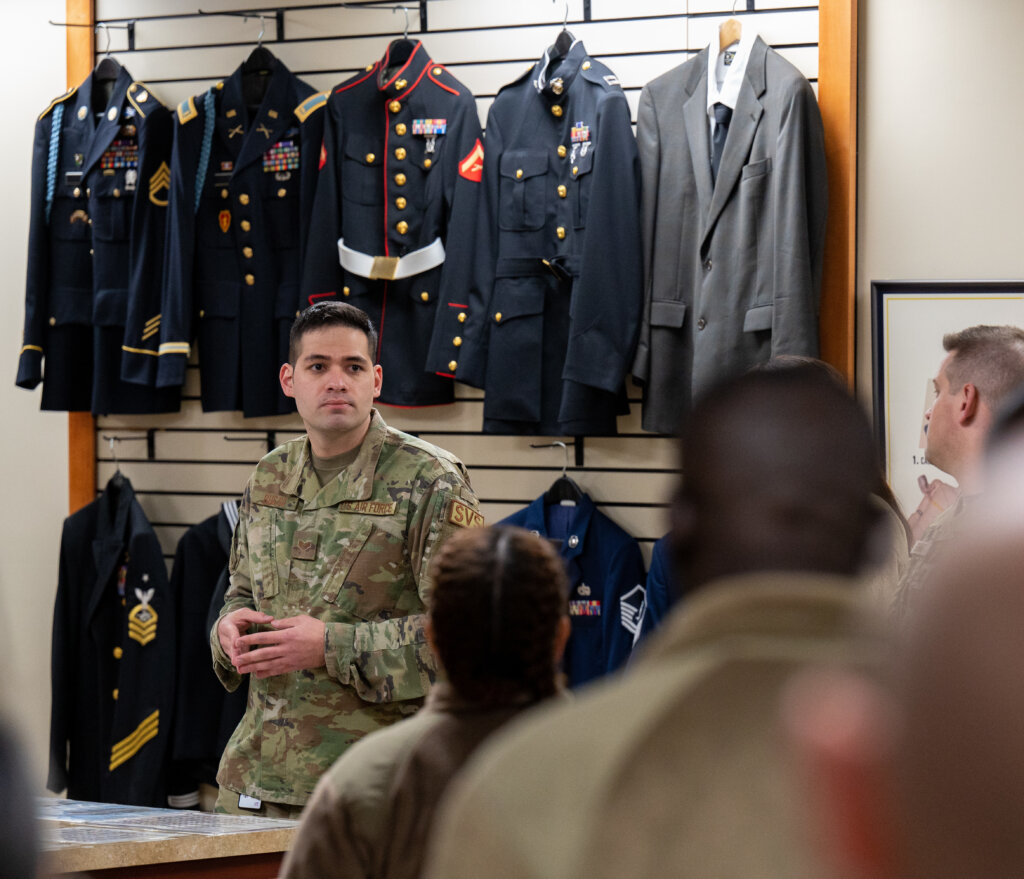While each branch of the U.S. Armed Forces has its own way of approaching the solemn task of the passing of a service member, Air Force Mortuary Affairs Operations is unique in its methods.
Unlike other branches, the mortuary specialists who work in AFMAO are Department of Defense employees. And AFMAO handles all aspects of the process from their headquarters at Dover Air Force Base, Delaware.
“Our mortuary specialists are Department of the Air Force civilians who are licensed funeral directors and embalmers and support the preparation of remains for all fallen service members,” said AFMAO Public Affairs Officer Christin Michaud.
AFMAO mortuary specialists’ primary mission is the dignified transfer and handling of remains of fallen service members, as well as supporting surviving family. AFMAO assists Families of the Fallen, which offers help and assistance to those who travel to Dover AFB in the wake of the death of a serving family member.
In addition to the day-to-day affairs, AFMAO has 15 attached employees who conduct six to seven training sessions annually for mortuary specialists in the Air National Guard. Training consists of four blocks – about an hour each – that cover entitlements, honor guards, and the handling and transportation of the deceased.
Air National Guard involvement
Air National Guard mortuary specialist officers handle inspections, briefings and identifications. They also process death certificates, pay, and inventory of personal items.
Technicians, who are at the rank of master sergeant or above, support the officers and handle paperwork and logistics. All of those serving in these positions must complete training within two years of being assigned and are required to take a virtual refresher course every five years.
RELATED: AFRC, Mercy hospitals training agreement benefits multiple parties
Part of the assignment is understanding and implementing proper entitlements and honors. Service members who served any length of time are eligible for a two-man detail, taps and flag presentation. Serving six months or more, entitles them to be buried in a government cemetery and receive a plaque or headstone.
AFMAO is in constant contact with Air National Guard mortuary specialists and helps them with any issues that might arise.
“We’re there the whole way to assist them,” said AFMAO Mortuary Specialist Electa Thompkins.
According to Michaud, during Operation Iraqi Freedom, AFMAO handled 400-500 cases a year. In peacetime, the number is closer to 100.
‘Level of care’ differs per family
Mortuary specialists work with base public affairs personnel to draft and release media statements regarding the deaths of service members, especially those occurring during conflicts. But families must approve. More than half the time they do agree to the releases, according to statistics provided by AFMAO.
Many details can factor into the handling of the death of a service member, ranging from the location to transportation and wishes of the family. In times of conflict, involvement in a war zone can add more complexity to the process, as mortuary services personnel locate and secure remains after a service member has been listed as killed in action.
Grief and bereavement
The mental health of those who work in mortuary services is also a vital part of the process. An AFMAO resiliency program provides mental health assistance, counseling and access to chaplains. Individual installations also have resources available to personnel.
“We as AFMAO have to deal with so many levels of grief and bereavement,” Thompkins said, explaining that mental health services are seen as important when it comes to the specialists, and it is essential to decompress.
Michaud offered Thompkins as an example of the detail-oriented people who work in the department and support its high standards. She began her career in uniform and trained to become a licensed funeral director and embalmer. According to Thompkins, it takes a certain type of person to work in mortuary services.
“They really have to be compassionate and show a level of concern for the survivors. Taking care of our families is our top priority,” Thompkins said, explaining that the job comes down to one thing. “Honor and respect.”

